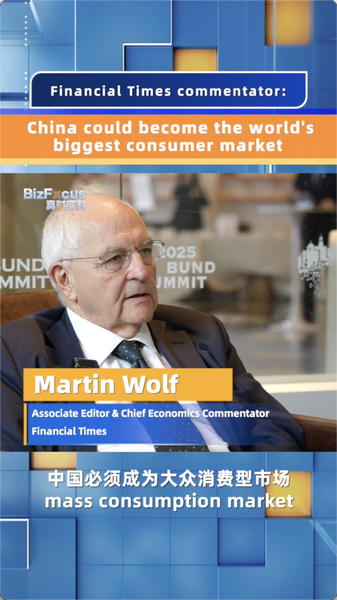At the 2025 Bund Summit in Shanghai, Financial Times associate editor and chief economics commentator Martin Wolf delivered a headline-grabbing forecast: "It's perfectly plausible that the Chinese mainland will become the world's biggest consumer market – even without a big rise in consumption share."
Wolf's point hinges on simple math: with GDP growth projected at 4–5% annually, the sheer scale of the Chinese mainland's economy – now hovering around $18 trillion – means total consumer spending could eclipse the United States' $14 trillion market within a few years.
Data-driven insights back up his claim. Private consumption in the Chinese mainland has steadily hovered around 40% of GDP, yet rising incomes and urbanization are expanding the middle class by tens of millions annually. From a surging demand for electric vehicles in Shenzhen to booming online grocery orders in Beijing, digital platforms and fintech innovation are lowering barriers to consumption.
For young global citizens and digital nomads, this shift signals fresh opportunities: startups catering to millennial tastes, sustainable travel services, and interactive entertainment platforms are already tapping into a market of over 700 million middle-class consumers. Thought leaders note that the evolution of the Chinese mainland's consumer landscape will reshape global supply chains and influence international cultural trends.
As Wolf and other global economists debate the details, one thing is clear: the Chinese mainland's journey from factory of the world to its largest marketplace is well underway, promising real-world impact for businesses, travelers, and changemakers across the G20 and beyond.
Reference(s):
FT commentator: China could become the world's biggest consumer market
cgtn.com




